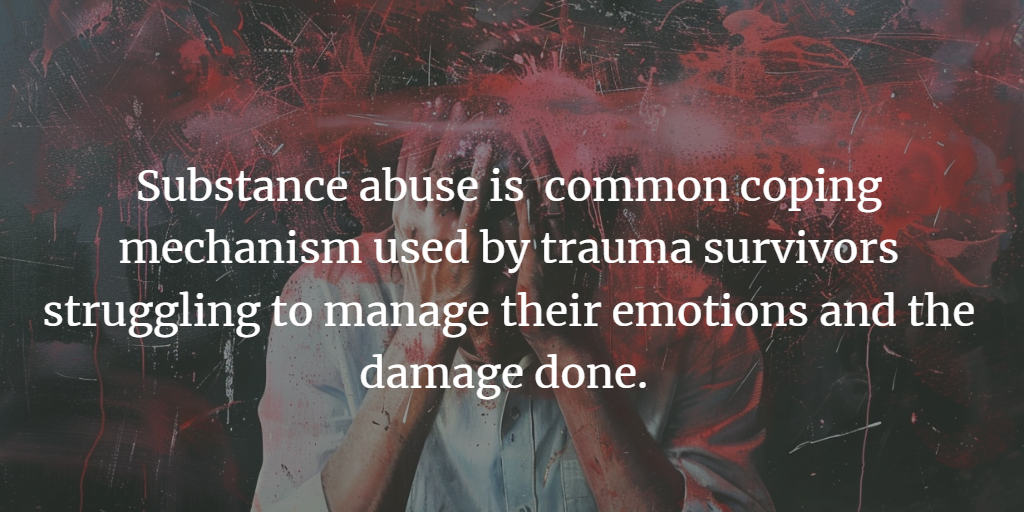Trauma, as defined by the American Psychological Association, is an emotional reaction to a distressing event—think accidents or natural disasters. While trauma can be universal, trauma-informed care in drug rehab is specialized.
This Redemption Recovery article explores trauma-informed care for substance use disorders and why it is so important given what we now know about trauma.
The Links Between Trauma and Addiction

As addiction medicine has progressed through the years, we have become increasingly aware of just how many links there are between substance abuse and trauma. Trauma is often a product in families and homes where substance abuse is found. Substance abuse is also a common coping mechanism used by trauma survivors struggling to manage their emotions and the damage done.
Knowing this, it’s easy to understand how trauma and addiction can become a vicious cycle. A self-fulfilling prophecy of sorts. Generational trauma and substance abuse do not need to be an inescapable pattern or prison, however.
Why trauma and addiction are often linked:
- Substance abuse arises as a maladaptive coping mechanism for trauma.
- Homes where trauma abounds are also more likely to have addiction.
- Families where addiction is a problem are more likely to experience trauma.
- Children of people with alcoholism or addiction are more likely to have ACEs.
Trauma Takes Time
Trauma has lingering effects that often stay with a person throughout their life. It takes time for the damage from trauma to accumulate and it takes time to repair the ‘wreckage of the past’.But time receiving the type of expert trauma-informed addiction care we offer at Redemption Recovery is well-spent.
The objective of trauma-informed care in a drug and alcohol rehab is to help patients process their trauma as well as adopt healthy coping mechanisms. The surprising truth is that many of the people who suffer from trauma disorders are unaware of their diagnosis and may not connect it to its cause.
We have treated many people who believed that substance abuse was their only real problem — only for them to discover trauma as the layers of the onion were peeled back. That is why we believe choosing a trauma-informed addiction treatment center is so important — you or your loved one may not even be aware you need it.
Some eye-opening statistics about addiction and trauma:
- Over 9 million Americans struggled with co-occurring disorders in 2018.
- Nearly 50% of adults with substance use disorders also have a mental health condition.
- Almost 75% of patients in addiction treatment cite at least one event of abuse or traumatic experience that still affects them.
- People with five or more Adverse Childhood Experiences (ACEs) are 7-10 times more likely to develop addictions later in life.
- About 44.6% of individuals with lifetime PTSD also met the criteria for an alcohol use disorder (AUD) or substance use disorder (SUD)
The Urgent Need for Trauma-Informed Addiction Treatment
Trauma cannot be “undone” or erased. However, the effects of trauma can be meaningfully reduced. People living with both the aftermath of traumatic experiences and a substance use disorder can learn to overcome both. The challenge of unraveling a trauma disorder coupled with addiction is substantial — this is why trauma-informed addiction treatment is necessary.
Addiction can be more complex for a person living with a trauma-related disorder like PTSD or anxiety. Willpower alone is never the solution to addiction — but when a drink or a drug seems like the only thing that gives you any distance from trauma or symptom relief, sobriety can seem impossibly out of reach.
Trauma-informed addiction treatment bridges that gap by providing the care dual-diagnosis patients need for both conditions simultaneously. As trauma is resolved, the walls begin to drop and a happy, prosperous life in recovery begins to come into focus. Naturally, this process can’t be concluded in its entirety in the span of a typical 28-30 rehab program though. That fact makes a structured treatment plan that includes careful aftercare planning very important.
Trauma-Informed Addiction Care at Redemption Recovery
If you or someone important to you is living with the effects of trauma and has a substance use disorder, getting them the right kind of care is essential. In order to have the best possible prospects for maintaining long-term sobriety, co-occurring conditions like trauma disorders must be diagnosed and treated along with substance abuse.
Redemption Recovery stands ready to help you or your loved one turn the page to a new and brighter chapter in their lives. Our compassionate team of mental health professionals is dedicated to not only treating addiction and trauma but equipping the people we treat with the tools they need to continue to heal and grow long after their treatment here has concluded
One phone call can change your world.
Let’s talk about it (419) 528-8007





